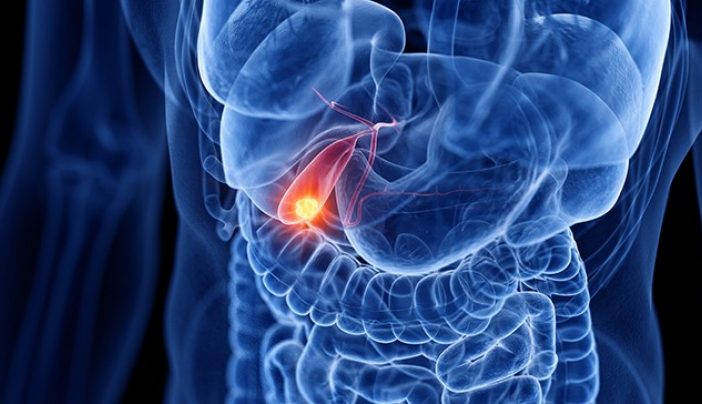
From Diagnosis to Rehabilitation: Understanding the Journey of Curing Stage 3 Gallbladder Cancer
Gallbladder cancer is a challenging disease, notorious for being hard to detect early and difficult to treat, particularly in advanced stages like Stage 3.
Here’s a guide on Stage 3 Gallbladder cancer and how the healing process looks like to help you prepare and help your loved ones fighting the battle:
What is Stage 3 Gallbladder Cancer?
Stage 3 gallbladder cancer is an advanced form of cancer where the tumour may have extended beyond the gallbladder to nearby tissues or lymph nodes but has not spread to distant body parts. It is classified into two categories:
- Stage 3A:Cancer has spread to the liver and/or one nearby organ other than the liver.
- Stage 3B:Cancer has spread to nearby lymph nodes and possibly permeated the liver or other adjacent organs.
How Common is Gallbladder Cancer in India?
Gallbladder cancer, though rare globally, has higher incidences in Northern and North-Eastern India. India sees about 10,000 new cases of gallbladder cancer annually. The higher prevalence in India could be linked to genetic factors, dietary habits, and the prevalence of gallstones, a known risk factor for gallbladder cancer.
What are the Symptoms?
Symptoms of gallbladder cancer might not be evident in the early stages but in Stage 3, symptoms can include:
- Bloating
- Pain in the upper right abdomen
- Nausea and vomiting
- Weight loss without trying
- Jaundice (yellowing of the skin and eyes)
Recognizing these symptoms early and consulting a healthcare provider can lead to quicker diagnosis and treatment.
How is Stage 3 Gallbladder Cancer Diagnosed?
Diagnosis begins with a thorough clinical examination followed by imaging tests such as ultrasound, CT scan, and MRI to visualize the extent of the cancer spread. A biopsy confirms the diagnosis by examining tissue under a microscope. For Indian patients, access to these diagnostic tools is increasingly available in both urban and rural healthcare centres.
Treatment Options for Stage 3 Gallbladder Cancer
Treatment for Stage 3 gallbladder cancer typically involves a combination of surgery, chemotherapy, and radiation therapy.
- Surgery: The primary treatment is often a radical cholecystectomy where the gallbladder, portions of the liver, and other tissues are removed. This aims to eliminate as much cancer as possible.
- Chemotherapy: Drugs are used to kill cancer cells, often administered before surgery to shrink tumours and after to eliminate remaining cancer cells.
- Radiation Therapy: High-energy rays are used to target and kill cancer cells, usually post-surgery to clean up any residual disease.
Each treatment plan is tailored to the patient's overall health, cancer stage, and other personal factors.
Challenges in Treatment
The treatment of Stage 3 gallbladder cancer in India faces several challenges:
- Late Diagnosis:Many patients present with late-stage cancer when symptoms become unbearable.
- Access to Healthcare:While urban centres have advanced healthcare facilities, rural areas are still catching up.
- Cultural and Economic Barriers:There is often a lack of awareness, and economic constraints can delay seeking timely medical help.
The Role of Nutrition and Lifestyle in Rehabilitation
Post-treatment, the focus shifts to rehabilitation, which includes nutritional management and lifestyle changes to support recovery and enhance the quality of life. A dietitian might recommend a high-protein, low-fat diet to help rebuild tissues and maintain a healthy weight. Physical activity as tolerated is encouraged to regain strength and vitality.
The Psychological Impact and Support Systems
Recovering from cancer is not just a physical journey but a psychological one as well. Patients may experience anxiety, depression, or stress about recurrence. Support from family, friends, and cancer support groups can be invaluable. Additionally, professional help from a psychologist or counsellor should be considered.
Research is ongoing to improve the outcomes for gallbladder cancer patients. Advances in targeted therapies and immunotherapies hold promise. Clinical trials in India and globally are exploring new drugs and combinations that could potentially lead to better survival rates.
Frequently Asked Questions
Q: Can gallbladder cancer be prevented?
A: While there's no guaranteed way to prevent gallbladder cancer, maintaining a healthy weight, and a balanced diet might reduce the risk.
Q: Is gallbladder cancer hereditary?
A: Family history of gallbladder cancer increases the risk, though it's not always hereditary.
Q: What is the survival rate for Stage 3 gallbladder cancer?
A: The five-year survival rate for regional gallbladder cancer, which includes Stage 3, is around 15-20%. However, individual outcomes can vary significantly based on numerous factors.
Find the Right Help with Dr. Santosh Anand
Dr. Santosh Anand, at SA Gastrocure, offers cutting-edge, patient-centric treatment options for complex gastroenterological issues. Specializing in minimally invasive laparoscopic surgery, Dr. Anand ensures quicker recovery and minimal discomfort for patients. His expertise also extends to bariatric surgery, aimed at significantly enhancing the lifestyle of individuals with obesity, and advanced hepato-pancreato-biliary surgeries, which are performed with an emphasis on reducing patient morbidity. With a deep commitment to respect and dignity for all, Dr. Anand’s approach not only addresses the physical ailments but also supports the overall well-being of his patients.

